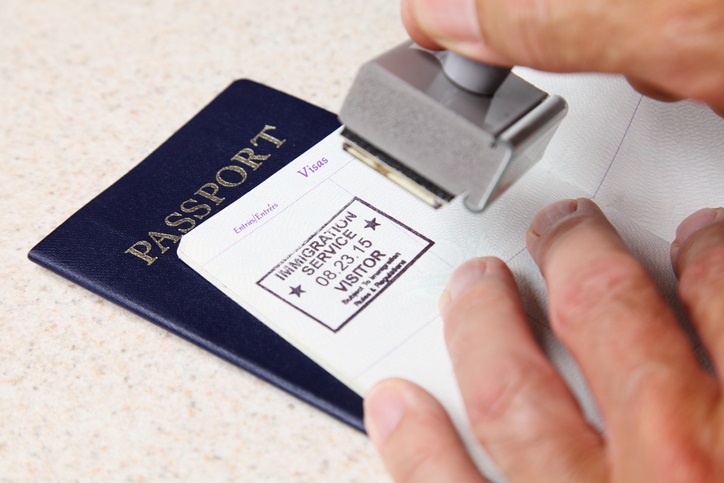The Temporary Family Visitation Act may be incremental immigration reform, but it would be a grand slam for foreign-born MLB players.
Jordan Heller | November 1, 2023
Read the Original Article on The Liberal Patriot here
In this year’s World Series between the Texas Rangers and Arizona Diamondbacks, eight key players are representing their home countries of Cuba, Venezuela, and the Dominican Republic. Four of those players will emerge victorious. Their natural-born American teammates will be surrounded by family, exulting in their loved ones’ success. But for these international players, victory won’t be as sweet.
Jose Alvarado, the hard-throwing left-handed relief pitcher of the Philadelphia Phillies, who made it to the World Series last year, explained why last month.
“It’s so hard, man,” an emotional Alvarado told reporters after he helped his team win the first game of the National League Wildcard Series. “After the game, I went home and my mom called me [from Venezuela]. She was crying because she missed the World Series last year. This year, I tried to bring her to the United States and the United States wouldn’t give her a visa.”
With nearly 30 percent of MLB players foreign-born, Alvarado is one of many who, despite their resources and importance in American culture, are unable to share their achievement with family. Right now, when a foreign national from a country for which the U.S. offers no visa waiver wishes to visit a U.S.-based relative, they must apply for a tourist visa. It can take years just to meet with a U.S. consular officer for action on an application, which oftentimes results in a denial. Paris Etamadi Scott, an immigration lawyer based in San Jose, California, told me that such consular rejections are “routine” for the many Persian-speaking immigrants she represents. She described for me a catch-22 in which strong family ties in the U.S. give an individual a valid reason to visit while those same family ties give a U.S. consular officer a reason to suspect the applicant intends to immigrate.
“This has been tearing Iranian families apart pretty much since the 1979 Iranian Revolution,” Scott told me. The same can be said for the many Dominican, Cuban, and Venezuelan families with relatives playing Major League Baseball.
But there’s hope for these families: the Temporary Family Visitation Act (TFVA), a tightly-focused bipartisan bill that would establish a new visa for U.S. citizens and lawful permanent residents to welcome loved ones from abroad.
Many of the above-mentioned tourist visa rejections fall under Section 214(b) of the Immigration and Nationality Act, whereby applicants with family ties in the U.S. are presumed to have intentions to immigrate unless they can prove otherwise. Proving your state of mind to a U.S. consular officer can be a heavy lift.
Instead, the TFVA would provide practical safeguards against visa overstays. During the course of their visit, which under the proposed visa would not exceed 90 days, the traveler would be prohibited from attempting to change their visa status. Also, responsibility for compliance would be shared by the relative based in the U.S., who must petition on behalf of the visa applicant. The U.S.-based petitioner would be required to sign an affidavit claiming financial responsibility for the applicant until they leave the U.S., and if an applicant overstays their visa, the petitioner would be forever barred from the program.
Beyond the moral imperative of allowing families to reunite with loved ones, the new visa would prove a boon to the U.S. economy. According to the U.S. Travel Association, each overseas traveler visiting the U.S. spends $5,000 on average during the course of a stay. With more than 1 million people expected to take advantage of the TFVA annually, that’s more than $5 billion a year in additional travel spending, which economists say would lead to the creation of thousands of jobs.
Passage of a targeted bill like the TFVA could also point the way toward piecemeal reformation of our sprawling and deeply flawed immigration system. Casey Higgins, who served as senior policy advisor to former House Speaker Paul Ryan, argued as much to a December 2022 immigration policy conference:
[With comprehensive immigration reform] every [House] member has a reason to vote no instead of every member having a reason to vote yes, and it has collapsed under its own weight…Instead, take steps in the right direction to do confidence building measures that show that we are not completely inept, that we can do this without the political ramifications burning the place down. We can build the confidence to do more, and more, and more.
I’ve heard this argument from many congressional experts, including lawmakers. Perhaps Dip Patel, who founded the nonprofit organization Improve the Dream to advocate for Documented Dreamers, sums it up best:
Over the last 20 years, imagine if every year we were able to get a narrow improvement in the immigration system. That, essentially, by now, would’ve taken care of most of what we want in comprehensive reform.
The plight of a few baseball players may seem small set beside these other concerns, but here, too, there is much to gain in passing the TFVA. After all, it’s not just the world’s best baseball players who come to the United States; America also attracts the world’s best innovators in medicine, science, and technology. It’s part of what has made this country great.
Regardless of who wins the World Series, there will likely be a post-game interview with one of its Dominican, Cuban, or Venezuelan stars, heartbroken that he couldn’t share the experience with the family he left behind. Other elites in their respective fields who live in India, China, and across Latin America, may be watching and will certainly empathize with the ballplayer’s distress. They, too, may be considering bringing their talents to the U.S. and decide not to come here at all.
But that’s something we can easily remedy.








